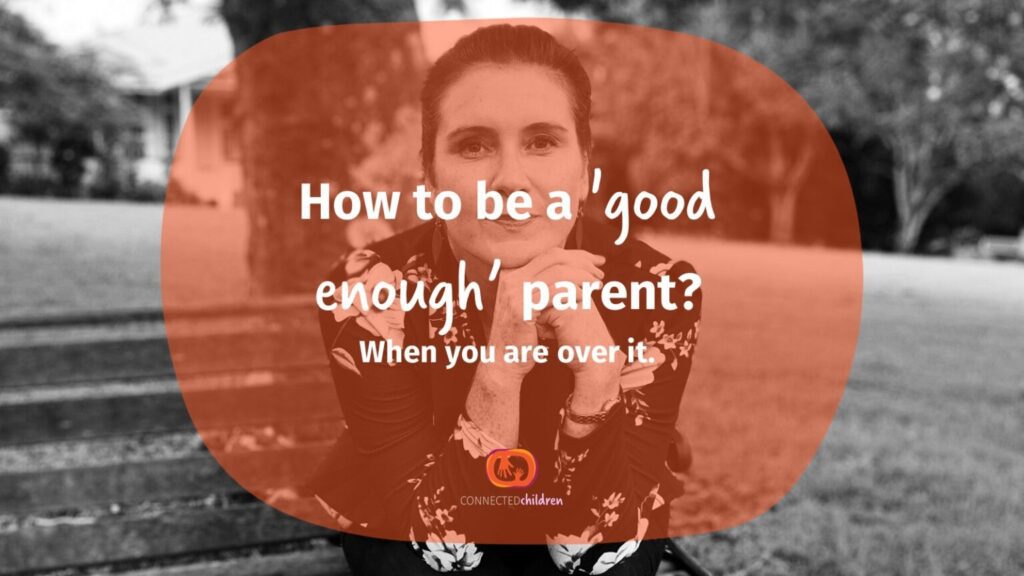
We all have days when we are ‘over it’, these moments can bring up feelings of failure. We all want to be the best parent we can be however, being a ‘good enough’ parent is better than being a perfect parent.
This is not the ‘you are enough’ mantra – that reassures us about our imperfections. I am talking about good enough parenting, being the exact measure of parenting we need.
So, let’s think through exactly what this is.
This term was first coined by a paediatrician and psychoanalyst Donald Winnicott. He said that when a baby is born, when the mother provides consistent, predictable responsive caregiving, the baby learns that the world is a safe place.
However, equally as important, Donald Winnicott stated that children, over time as they got older, needed to learn to tolerate the experience of having their caregivers ‘fail’ them. Examples include, when a child has to wait while mum is busy, learning to hold on until their parent can respond to them. This can initially be challenging for children, especially when they are younger or have additional needs. However, this sort of situation provides opportunity for them to learn to function in everyday situations. This can help them to learn to cope with frustration and disappointment.
To be clear, we are not talking about abuse or neglect, but occasional failures, not attending to them when they would like us to.
When they don’t have their needs met whenever they want them to be met. They can tolerate the experience of these minor frustrations in their early life, they learn that when this happens, they can trust themselves to be able to cope with these situations.
When we give our children ‘good enough’ parenting, we prepare them for the real, imperfect world. We are helping them to learn to develop resilience.
It isn’t possible to be perfect, furthermore, it isn’t healthy for the parent or the child. There are costs to both parent and child if we strive towards perfect parenting.
When we combine our wisdom, caring instincts and a bit of everyday busyness this approach will give our children attuned, connected and devoted parents who allow themselves to occasionally ‘fail’ their children. This is our gift to them as we set them up for the ups and downs of life.
When we as parents can be ok with being good enough, everyone benefits.
Allowing failure into your parenting builds your child’s resilience, so the next time you #mumfail, remember, you may just be giving them exactly what they needed anyway.
Think it through points for potential follow up:
- How do you cope when you cannot respond to your child when they want you?
- Do you find you struggle with ongoing feelings of guilt or a sense of failure.
- Do you find this affects your parenting? For example, do you find setting boundaries or saying no, hard?
- How does your child cope with having to wait? Is this something they need more exposure to in a way that they can tolerate?
- Does your child need support to ‘hold on’ when waiting. Perhaps try giving them a card to hold, if they can read it might say ‘Tim’s waiting card, mummy is almost there’. If they can’t read, it may be a heart or something they recognise.
